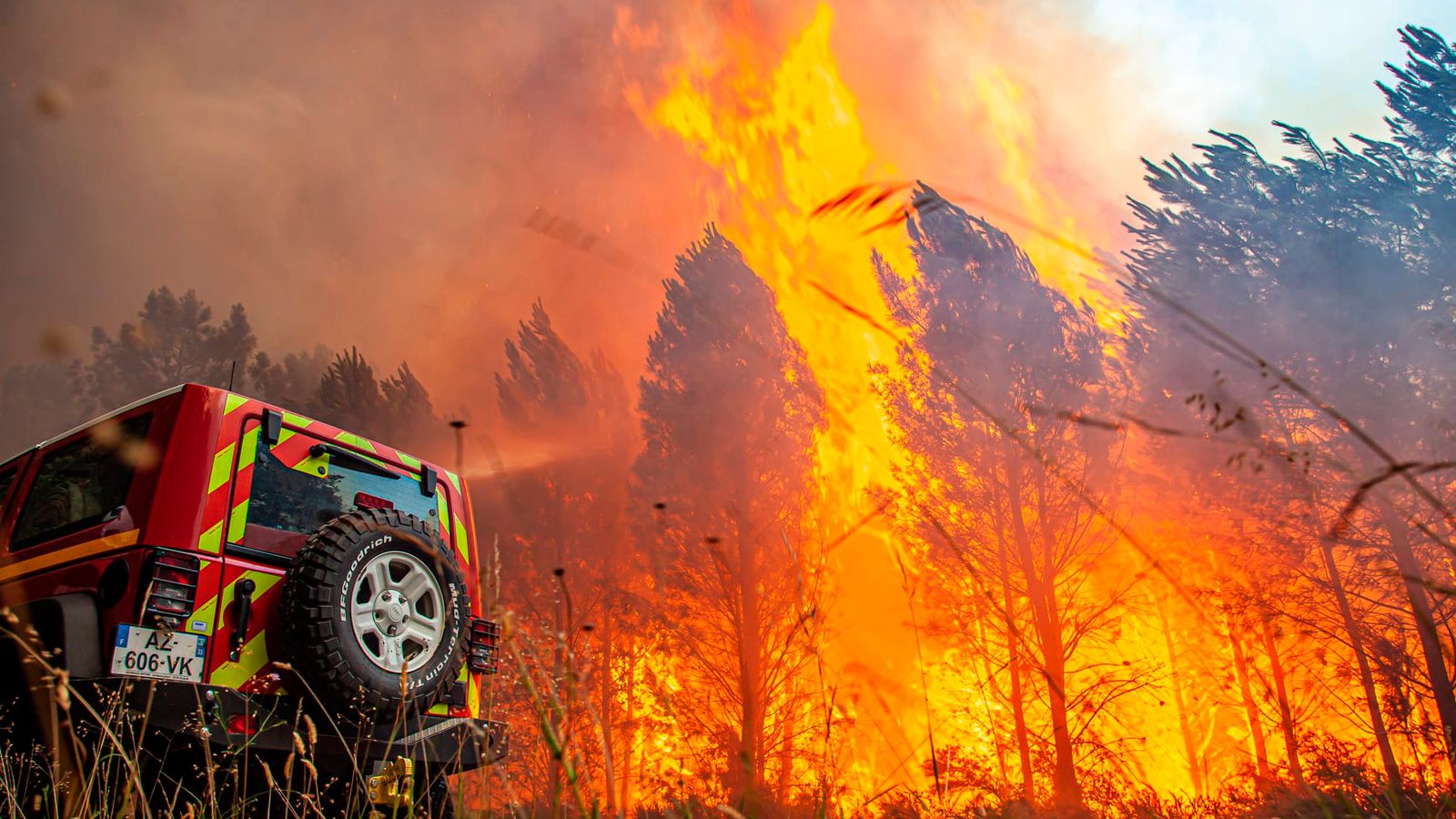Wildfires are continuing to rage across Europe causing thousands of people to evacuate and claiming the life of a pilot of a firefighting plane.
Strong winds and hot, dry weather have hampered efforts to battle a huge blaze that is burning through pine forests in Bordeaux, while fires have also burned in Portugal, Spain, Greece, Hungary and Croatia.
Around 3,000 firefighters supported by water-dumping planes battled the wildfire in southern France as they sought to save as many homes as possible.
Fire season has hit parts of Europe earlier than usual this year after an unusually dry, hot spring left the soil parched – something authorities have attributed to climate change.
In pictures: Wildfires across Europe, droughts and ice pops
In Portugal, more than 1,000 firefighters worked alongside ordinary citizens desperate to save their homes on Saturday after a long week of battling multiple blazes around the country.
The fires have been fanned by earlier-than-usual extreme temperatures and drought conditions.
Extreme weather: Britain’s cities need radical design overhaul – or they will become unliveable
UK heatwave: Revealed – the areas of England that are most vulnerable to hotter weather
Extreme weather: Roads close, ‘frightening’ fires break out and drought sets in as Portugal’s temperatures climb towards 46C
A pilot of a firefighting plane died on Friday when his plane crashed while on an operation in the northeast of the country, the first fire fatality in Portugal this year.
Across the border, firefighters in Spain struggled to contain several blazes, including two that burned around 7,400 hectares of land.
Around 3,000 people had to be evacuated from villages in southern Andalusia as a fire burned nearby.
Read more:
Portugal – Roads close, ‘frightening’ fires break out and drought sets in
UK heatwave: Why ‘tropical nights’ could be deadly
UK heatwave: COBRA meeting called as national emergency declared over soaring temperatures
For a sixth day, firefighters were also trying to bring under control a fire started by a lightning strike in the west-central Las Hurdes area.
“All heatwaves studied so far in Europe are getting warmer,” said Robert Vautard of the Pierre-Simon Laplace Institute at the Sorbonne University.
“As long as greenhouse gas emissions are not reduced to zero, heatwaves will continue to intensify, become more frequent and last longer.”






















